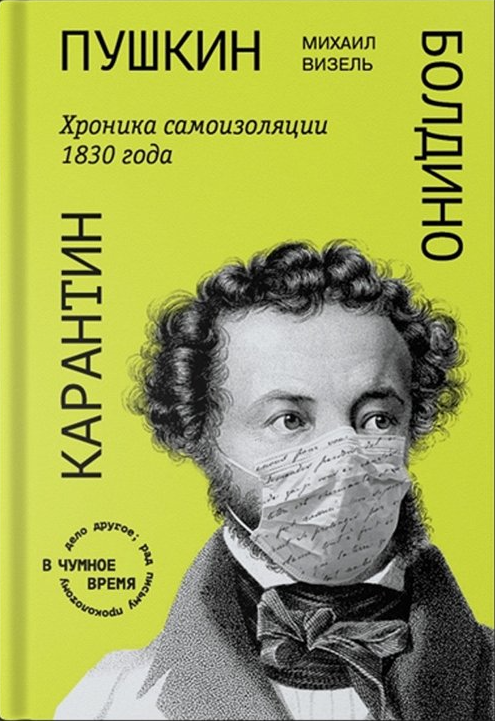
Mikhail Vizel
| Pushkin. Boldino. Karantin. | Pushkin. Boldino. Quarantine. Chronical of self-isolation 1830 Non-fiction. Boslen. Moscow 2020. 183 pages |
| Foreign rights: | Croatia/ Sandorf |
«Nothing resembles a Russian village from 1662 more than a Russian village in 1833», - Pushkin once said.
And nothing resembles our year 2020 more than Pushkin‘s quarantine of 1830, when cholera raged in Russia and parts of the country were in lockdown. The Russian poet Alexander Pushkin, already famous at the time, is stuck in Boldino for three months. The planned wedding with his fiancée Natalia Goncharova has to be postponed. He tries twice in vain to get to her in Moscow, where she was carelessly left. Most of the residents have long since been evacuated because of the rampant epidemic. Pushkin is worried. And with jealousy that the bride might jump off him. He is furious because, despite bribing the police, he is unable to bypass the roadblocks to Moscow. The postman remains his only connection to the outside world.
Mikhail Vizel reconstructs the exciting chronology of the Boldino autumn in a witty, amusing and analytically accurate way. Commenting letters from Pushkin to his bride, we are introduced to his love affair, which has to pass an extraordinary stress test during lockdown. We can not only chronologically follow Pushkin‘s passionate ups and downs during quarantine, but finally experience them with compassion based on our own Covid experience.
A few letters to friends, colleagues or his literary agent also throw illuminating highlights on the psyche of the brilliant poet during his quarantine. Because he is also plagued by Russian censorship, his own financial worries, literary competition and his own addiction to buckwheat oats.
Today Boldino‘s autumn is considered Pushkin‘s most creative time.

